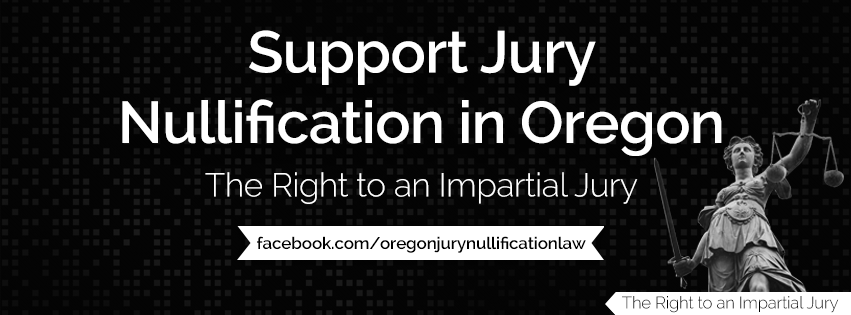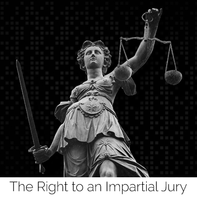SB 924 is the Oregon Jury Nullification Bill
“The primary function of the independent juror is not, as many think, to dispense punishment to fellow citizens accused of breaking various laws, but rather to protect fellow citizens from tyrannical abuses of power by government.”
Please contact the following Senators on the Judiciary Committee and politely ask them to vote yes on Senate Bill 924, the Oregon Jury Nullification Bill. Ask them to schedule a Hearing for SB 924, and to pass the bill on for a full vote of the Senate. Then ask them to support the Right to Jury Nullification and please vote in favor of the measure.
Right now SB 924 is in the Senate Committee On Judiciary
More information and resource material concerning Jury Nullification is immediately following the list.
2017 Regular Session
Senate Committee On Judiciary
Committee Chair Senator Floyd Prozanski
Democrat - District 4 - South Lane and North Douglas Counties
Capitol Phone: 503-986-1704 District Phone: 541-342-2447
Capitol Address: 900 Court St. NE, S-413, Salem, Oregon 97301
District Address: PO Box 11511, Eugene, OR 97440
Email: [email protected]
Website: http://www.oregonlegislature.gov/prozanski
Senator James I. Manning Jr.
Democrat - District 7 - North Eugene, West Eugene, Santa Clara, and Junction City
Capitol Phone: 503-986-1707
Capitol Address: 900 Court St. NE, S-205, Salem, Oregon 97301
Email: [email protected]
Website: http://www.oregonlegislature.gov/manning
Senator Michael Dembrow
Democrat - District 23 - Portland
Capitol Phone: 503-986-1723 District Phone: 503-281-0608
Capitol Address: 900 Court St. NE, S-407, Salem, Oregon 97301
Email: [email protected]
Twitter: @michaeldembrow
Senator Dennis Linthicum
Republican - District 28 - Klamath Falls
Capitol Phone: 503-986-1728
Capitol Address: 900 Court St. NE, S-305, Salem, Oregon 97301
Email: [email protected]
Website: http://www.oregonlegislature.gov/linthicum
Senator Kim Thatcher
Republican - District 13 - Keizer
Capitol Phone: 503-986-1713
Capitol Address: 900 Court St. NE, S-307, Salem, Oregon 97301
Email: [email protected]
Website: http://www.oregonlegislature.gov/Thatcher
The Fully Informed Jury
Articles, Editorials, Essays, Letters, and Speeches
Jury Nullification in American History
Quotes on the Fully Informed Jury
FIJA ~ Jury Rights Day ~ KrisAnne Hall Explains Jury Nullification
Judge Will Reportedly Misinform Jurors in the Trial of Ammon Bundy & Six Others



 RSS Feed
RSS Feed
